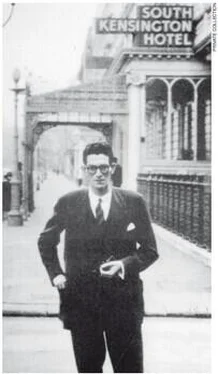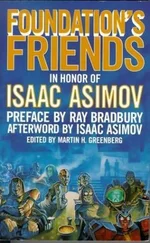Ben Macintyre - A Spy Among Friends
Здесь есть возможность читать онлайн «Ben Macintyre - A Spy Among Friends» весь текст электронной книги совершенно бесплатно (целиком полную версию без сокращений). В некоторых случаях можно слушать аудио, скачать через торрент в формате fb2 и присутствует краткое содержание. Год выпуска: 2014, ISBN: 2014, Издательство: Bloomsbury Publishing, Жанр: Старинная литература, на английском языке. Описание произведения, (предисловие) а так же отзывы посетителей доступны на портале библиотеки ЛибКат.
- Название:A Spy Among Friends
- Автор:
- Издательство:Bloomsbury Publishing
- Жанр:
- Год:2014
- ISBN:9781408851746
- Рейтинг книги:5 / 5. Голосов: 1
-
Избранное:Добавить в избранное
- Отзывы:
-
Ваша оценка:
- 100
- 1
- 2
- 3
- 4
- 5
A Spy Among Friends: краткое содержание, описание и аннотация
Предлагаем к чтению аннотацию, описание, краткое содержание или предисловие (зависит от того, что написал сам автор книги «A Spy Among Friends»). Если вы не нашли необходимую информацию о книге — напишите в комментариях, мы постараемся отыскать её.
A Spy Among Friends — читать онлайн бесплатно полную книгу (весь текст) целиком
Ниже представлен текст книги, разбитый по страницам. Система сохранения места последней прочитанной страницы, позволяет с удобством читать онлайн бесплатно книгу «A Spy Among Friends», без необходимости каждый раз заново искать на чём Вы остановились. Поставьте закладку, и сможете в любой момент перейти на страницу, на которой закончили чтение.
Интервал:
Закладка:
Angleton was attached to X-2, the OSS counter-intelligence section and the direct counterpart of MI6’s Section V. X-2 would eventually expand to take up the entire second floor of the Ryder Street building, while Section V occupied the floor above. Philby was drafted in to lecture the newcomers on the ‘arts and crafts’ of counter-espionage, penetrating enemy intelligence organisations, and the running of double agents. As one American officer observed, ‘I do remember being very impressed. He really knew what he was doing.’
Philby took a shine to the twenty-four-year-old American, and later wrote that Angleton ‘earned my respect by openly rejecting the Anglomania’ of so many of the new American arrivals. Angleton did not need to be Anglophile since he was, in many ways, so very English already. The extent of the friendship between Philby and Angleton at this point is hard to gauge since Angleton’s allies later tried to downplay it, just as his enemies tended to exaggerate it. According to Angleton’s biographer, ‘Philby may have felt he had a mentoring relationship with Angleton; Angleton may have shared that feeling.’ The two men became patron and protégé, the expert and the prodigy. ‘Philby was one of Angleton’s instructors, his prime tutor in counter-intelligence; Angleton came to look up to him as an elder-brother figure.’ Philby enjoyed having acolytes, and Angleton may have filled a gap left by Nicholas Elliott’s absence. The new arrivals and the old hands got to know one another over drinks, lots of them. ‘Our European friends were formidable consumers of alcoholic beverages, with apparently little effect,’ recalled one OSS officer. Angleton could drink with a Philby-like determination, but then he did everything with an intensity that others found impressive, and slightly odd. He moved a cot-bed into his Ryder Street office, and seemed to spend most of the night studying the esoteric secrets of counter-espionage with devout fervour, ‘as if they contained the secret of the Trinity’. He mixed with writers and poets, including William Empson and T. S. Eliot, and occasionally inserted a poem into his reports. Empson noted his ‘restless appetite for organising things’. Colleagues in OSS found him ‘extremely brilliant, but a little strange . . . full of impossible, colossal ideas’. Angleton was a little like one of the rare orchids he would later cultivate with such dedication: an exotic hybrid, a Mexican-Apache-Midwestern English-sounding poet-spy, rare and remarkable, alluring to some, but faintly sinister to those who prefer simpler flora. The bosses recognised that Angleton, for all his peculiarities, had found a vocation, and after six months he was promoted to the rank of second lieutenant and made chief of the Italian desk of X-2, controlling counter-intelligence operations in the country where he had spent much of his youth. His rapid ascent was due, in part, to Philby’s tutelage and patronage, and Angleton would later cite him as an inspiration. ‘Once I met Philby, the world of intelligence that had once interested me consumed me,’ he said. ‘He had taken on the Nazis and Fascists head-on and penetrated their operations in Spain and Germany. His sophistication and experience appealed to us . . . Kim taught me a great deal.’
With his mixture of charm and competence, Philby’s stature within Allied intelligence continued to grow, along with his responsibilities. Late in 1942, Cowgill asked him to take over counter-intelligence operations in North Africa, an area of key importance with the impending Allied invasion of French Morocco and Algeria. The region had previously been the responsibility of Captain Felix Russi, a former soldier from Gibraltar whom Philby described to his Soviet handlers as ‘an almost total moron’. Philby was happy to colonise his region. ‘We had achieved a fair stranglehold on the Abwehr in Spain and Portugal,’ he wrote, and ‘there was no reason why I should not shoulder additional responsibilities.’ A few months later, his brief expanded yet again, to include counter-espionage in Italy (the region James Angleton would soon cover, in parallel, for OSS). Soon after the move to London, Cowgill asked Philby to act as his deputy ‘in all intelligence matters’ while he paid a three-week visit to the US on MI6 business. Philby reflected, with wry false modesty, that he was ‘beginning to make a career in the secret service’. Promotion, however, was only a means to an end. ‘I regarded my SIS appointments purely in the light of cover jobs, to be carried out sufficiently well to ensure my attaining positions in which my service to the Soviet Union would be most effective.’
Even the most ideologically driven people usually need to test their convictions; to have others understand them, support them or challenge them. Philby never shared his beliefs; he never discussed politics, even with his fellow Soviet spies; after his early ideological discussions with Arnold Deutsch, the subject of communism was seldom raised with his Soviet handlers. He had persuaded himself of the rectitude of his course back in 1934, and after that the subject was closed. He retained and sustained his certainties in perfect isolation.
One of the richer ironies of Philby’s position is that while he could do no wrong in British eyes, in Moscow he continued to be viewed with mistrust. The main source of Soviet suspicion was a plump, blonde, highly intelligent, politically doctrinaire and fabulously paranoid NKVD analyst named Elena Modrzhinskaya, the head of the British department at Moscow Centre. Like many who lived through Stalin’s Purges, fear, propaganda and obedience had left a deep residue of mistrust in the soul of Modrzhinskaya, one of the very few women in a senior position within Soviet intelligence. She suspected a gigantic plot: she simply could not credit the ‘incomprehensible’ risks the Cambridge spies claimed they were taking on behalf of the Soviets; it was surely impossible that men with communist pasts could enter the British secret service so easily, and rise so fast; the British were known to be foisting an elaborate deception on the Nazis, and it stood to reason that they must be attempting to do the same thing to Moscow. In short, she simply could not, and would not, believe that Philby was what he proclaimed himself to be: ‘A straight penetration agent working in the Soviet interest.’ Philby was a plant, an imposter, a double-crosser: ‘He is lying to us in a most insolent manner.’ Anatoly Gorsky, the new rezident in London, was instructed to find out exactly what disinformation was being spread by Philby and the other British double agents. In time, the Centre would even despatch undercover agents to trail them, and collect incriminating evidence. The surveillance team spoke no English and got repeatedly lost, a problem they ascribed to brilliant spycraft on the part of Philby and the others, rather than their own inability to read a map. The Soviets set out to find evidence that did not exist, and when they failed to find it assumed this must be proof of how well that evidence had been hidden. In the end, Philby’s very Englishness rendered him suspect. As Yuri Modin, the Soviet officer who would take over the Cambridge spy network, observed: ‘He was so completely, psychologically and physically, the British intelligence officer that I could never quite accept that he was one of us, a Marxist in the clandestine service of the Soviet Union.’
Modrzhinskaya’s suspicions of disloyalty did not outwardly alter the way Philby was handled by his Soviet controllers. Gorsky was ordered to maintain contact with the British spies ‘in such a manner as to reinforce their conviction that we trust them completely’. Here, then, was a truly bizarre situation: Philby was telling Moscow the truth, but was disbelieved, and allowed to go on thinking he was believed; he was deceiving the British in order to aid the Soviets, who suspected a deception, and were in turn deceiving him. Moscow’s faith in Philby seemed to ebb and flow; sometimes he was considered suspect, and sometimes genuine, and sometimes both simultaneously.
Читать дальшеИнтервал:
Закладка:
Похожие книги на «A Spy Among Friends»
Представляем Вашему вниманию похожие книги на «A Spy Among Friends» списком для выбора. Мы отобрали схожую по названию и смыслу литературу в надежде предоставить читателям больше вариантов отыскать новые, интересные, ещё непрочитанные произведения.
Обсуждение, отзывы о книге «A Spy Among Friends» и просто собственные мнения читателей. Оставьте ваши комментарии, напишите, что Вы думаете о произведении, его смысле или главных героях. Укажите что конкретно понравилось, а что нет, и почему Вы так считаете.












